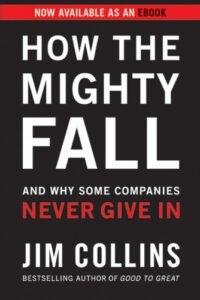|
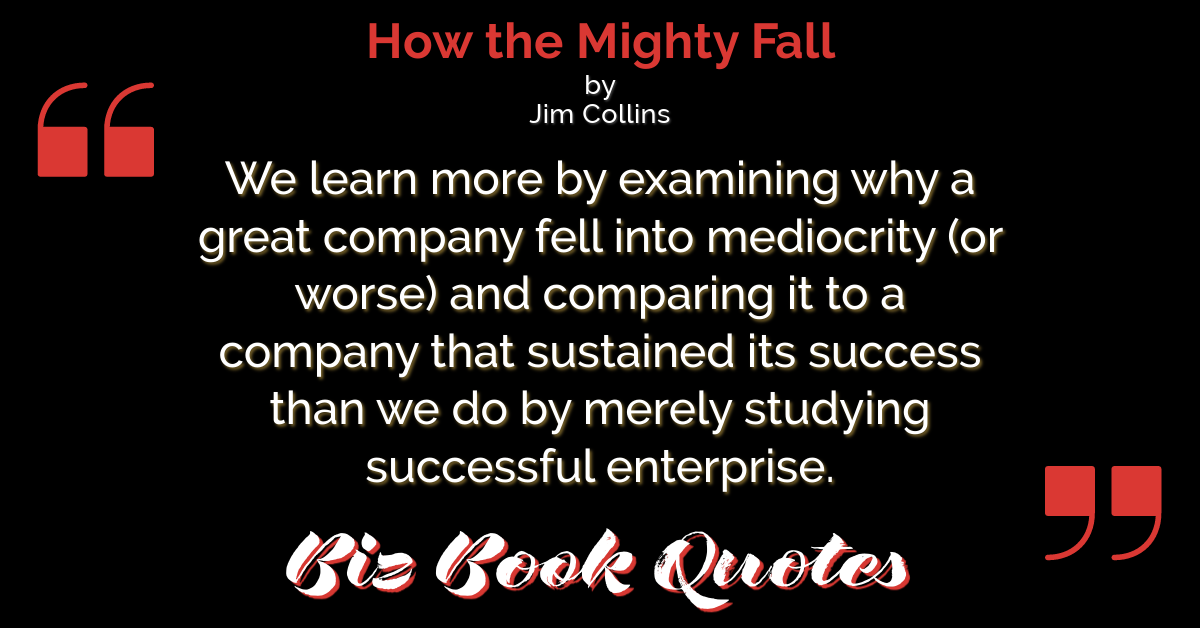
|
How the Mighty Fall:
We learn more by examining why a great company fell into mediocrity (or worse) and comparing it to a company that sustained its success than we do by merely studying successful enterprise.
|
024 |
|
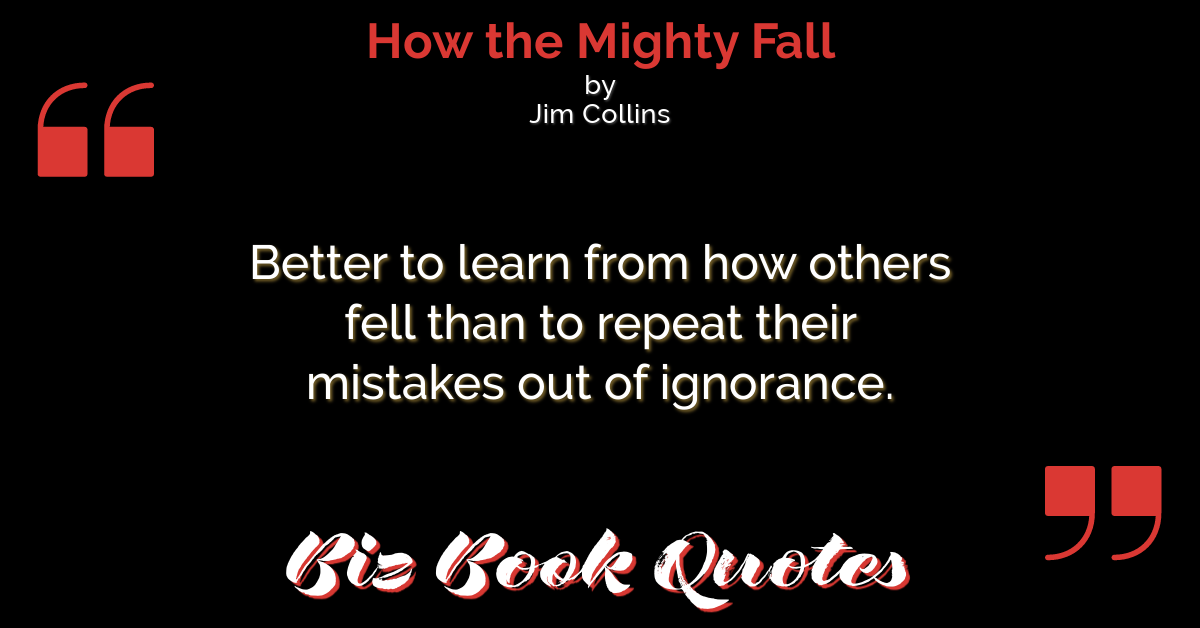
|
How the Mighty Fall:
Better to learn from how others fell than to repeat their mistakes out of ignorance.
|
025 |
|

|
How the Mighty Fall:
…research indicates that organizational decline is largely self-inflicted, and recovery largely within our own control.
|
025 |
|
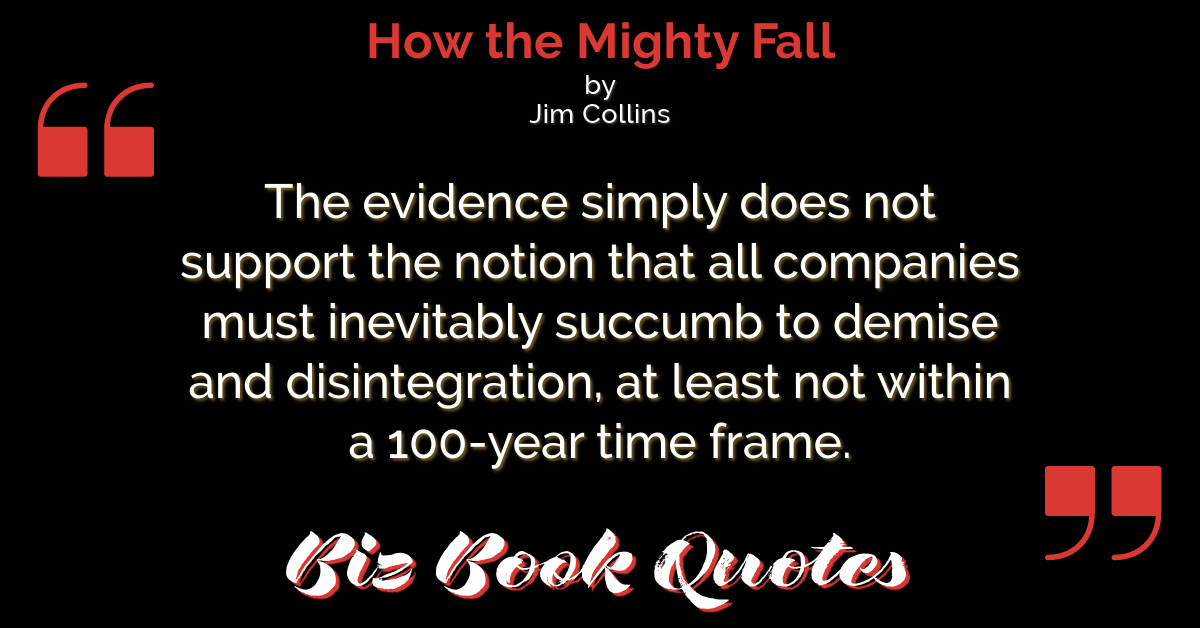
|
How the Mighty Fall:
The evidence simply does not support the notion that all companies must inevitably succumb to demise and disintegration, at least not within a 100-year time frame.
|
025 |
|

|
How the Mighty Fall:
Just because you may have made mistakes and fallen into the stages of decline does not seal your fate.
|
025 |
|
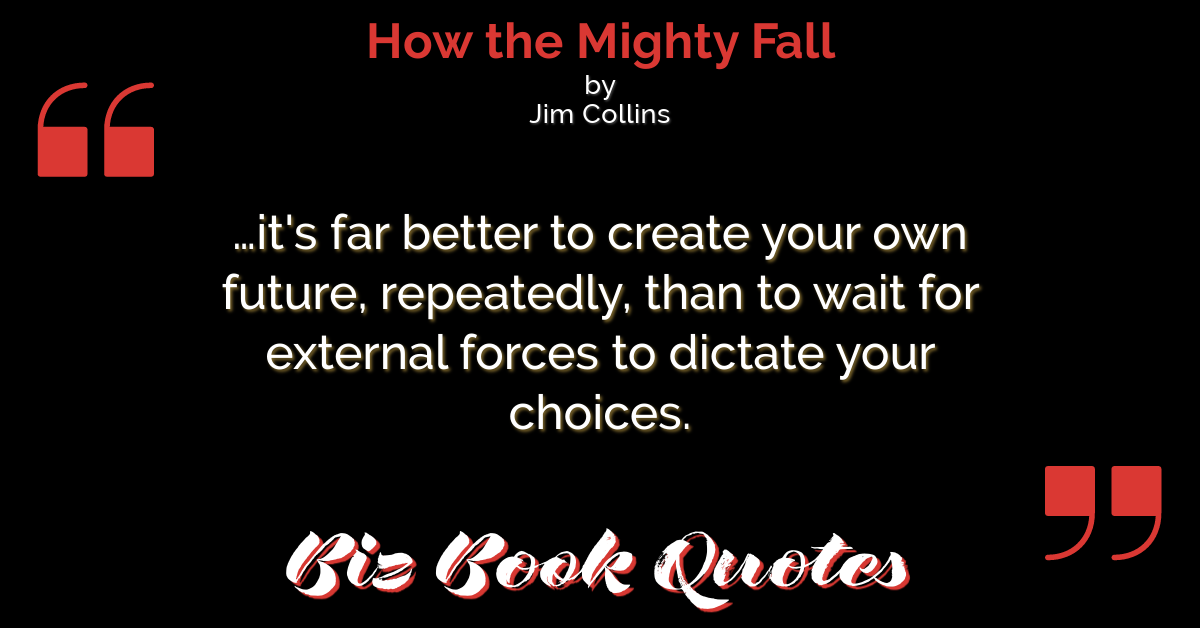
|
How the Mighty Fall:
…it’s far better to create your own future, repeatedly, than to wait for external forces to dictate your choices.
|
028 |
|
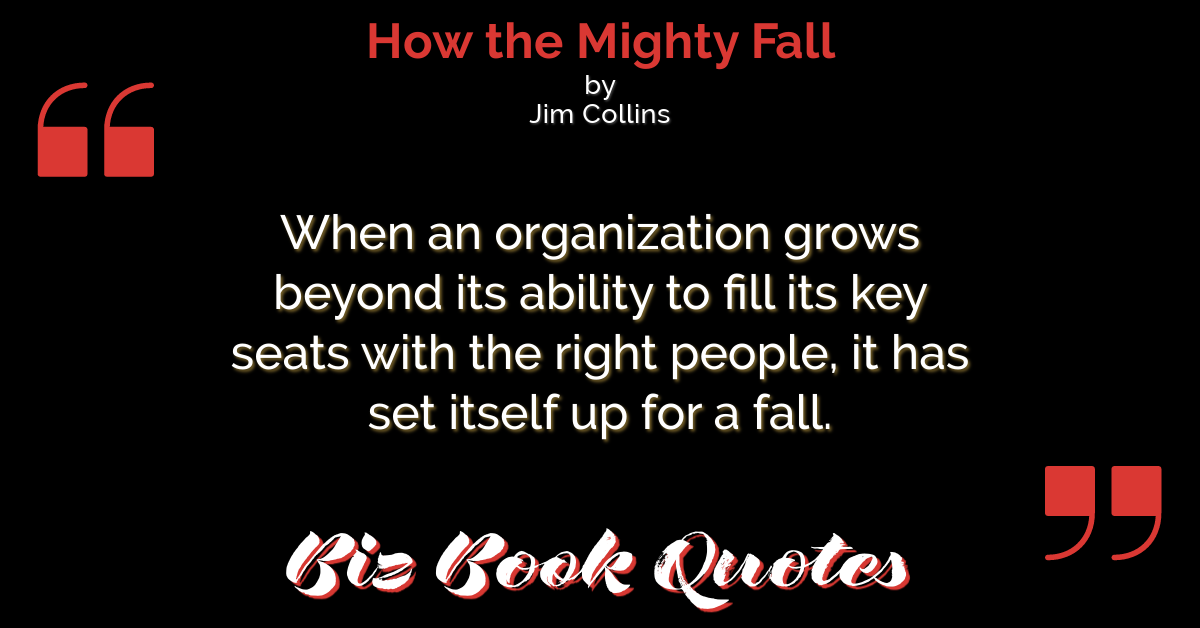
|
How the Mighty Fall:
When an organization grows beyond its ability to fill its key seats with the right people, it has set itself up for a fall.
|
028 |
|
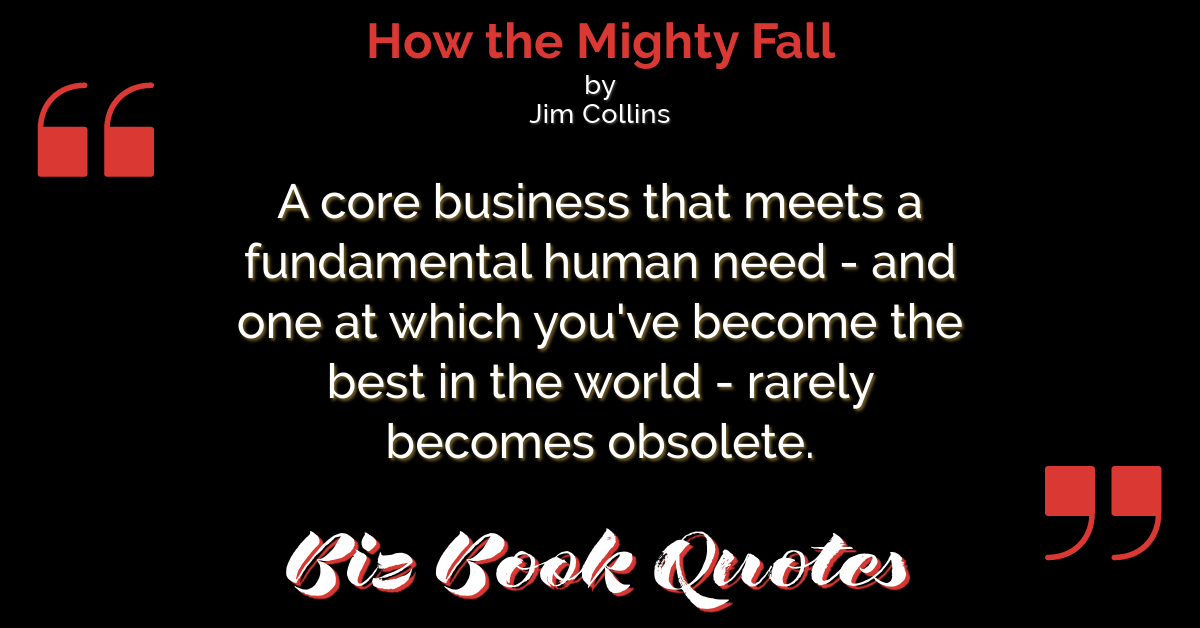
|
How the Mighty Fall:
A core business that meets a fundamental human need – and one at which you’ve become the best in the world – rarely becomes obsolete.
|
032 |
|
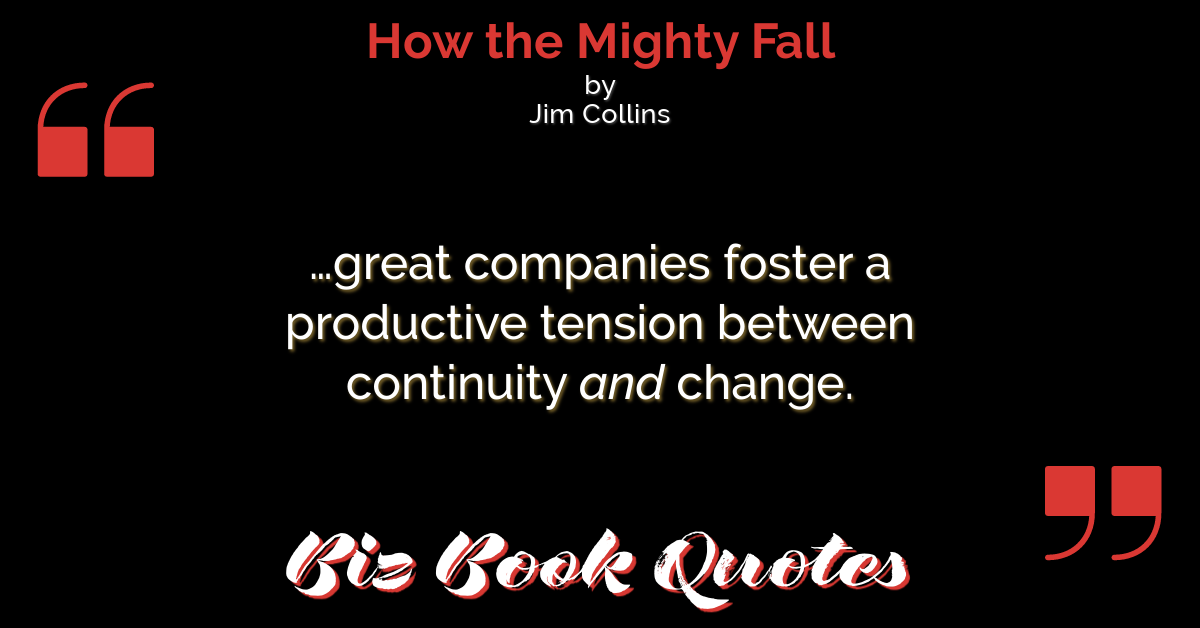
|
How the Mighty Fall:
…great companies foster a productive tension between continuity and change.
|
036 |
|
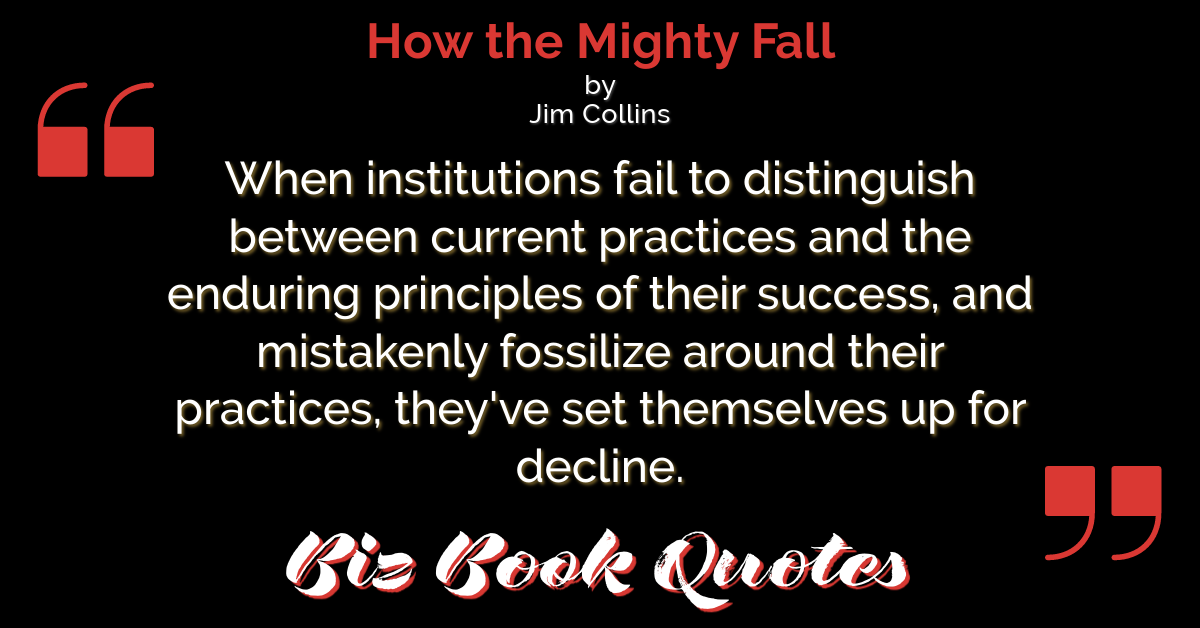
|
How the Mighty Fall:
When institutions fail to distinguish between current practices and the enduring principles of their success, and mistakenly fossilize around their practices, they’ve set themselves up for decline.
|
036 |
